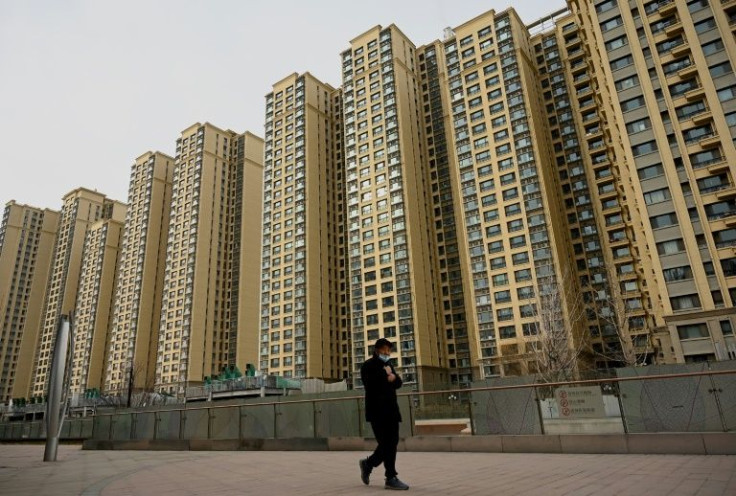China's Property Bubble Burst Could Be Far Worse Than Japan's
China's property bubble is about to burst. According to an S&P report, China's property sales could drop by more than 30%, far broader than the 2008 decline. Land developers have been counting on these sales to finance the construction of new property units, and a decrease in sales could create a liquidity problem for the industry.
In addition, the decline in property sales comes at a time when some homebuyers refuse to repay loans for unfinished properties, magnifying the liquidity problem of the industry. Moreover, it raises the credit risk for bondholders of land developers and banks that provided loans to purchase property units. Ultimately, a sales collapse could be followed by a price collapse, and the property bubble burst. Already, newly built home prices are on a sharp downtrend.
A collapse in property values could send China on a similar path to Japan in the early 1990s following its own property bubble burst. But, then, lower property values coupled with unfavorable demographics, the narrowing of the middle-aged population ranks, and the swelling of the elderly population, diminished the country's ability to compete in world markets and finance its social security system.
The rest is history. Japan keeps counting lost economic decades, its GDP barely grows, and government deficits are soaring. They add to its debt year after year, which accounts for 270% of its GDP, the highest among the developed nations.
China's situation could be far worse than Japan's. Its property bubble is far broader than Japan's as it involves the local governments, the ultimate owners of the land, and the government banks, which finance the development of these lands. Simply put, the Chinese government is both the lender and the borrower of the country’s property industry.
In financial terms, this situation where one branch of government lends money to another branch of government means the concentration rather than the diffusion of financial risks. In this financial scheme, it is tough to figure out the actual size of China's government debt.
Moreover, the concentration of financial risks and the difficulty of calculating China's debt make it hard for policymakers to deal with it, as the Greek debt crisis at the beginning of the last decade demonstrates. A "haircut" of the Greek debt didn't solve the country's debt problem. It instead moved it from one position in the government's balance sheet to another. That's how the country's debt to GDP ratio is now even higher than it was ten years ago when the crisis broke out.
Meanwhile, unlike Japan, China has yet to develop its breakthrough technologies and transition from imitation to innovation, a critical step for emerging market economies to overcome the "middle-income trap" and join the ranks of developed nations. And that could undermine the country's competitiveness in world markets far more than in the case of Japan, making the "lost decades" that would follow far worse.

© Copyright IBTimes 2025. All rights reserved.






















